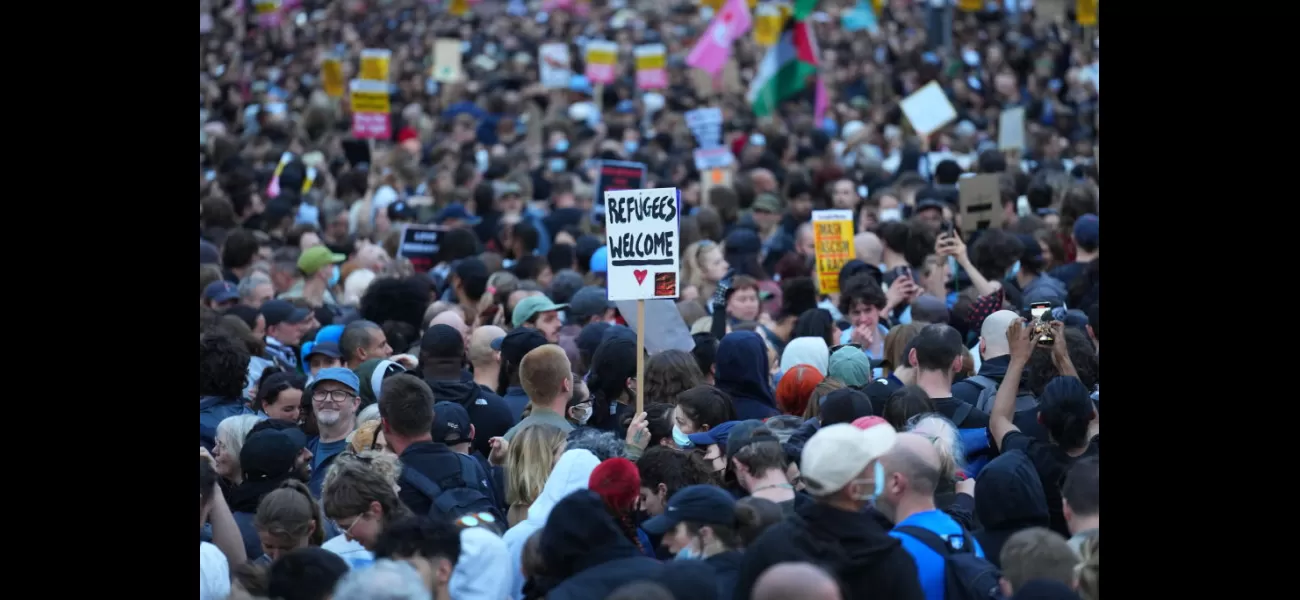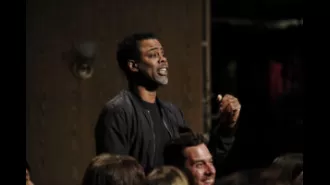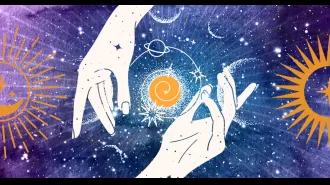Using this argument to defend minorities is not effective.
Safety should not depend on a person's economic contribution.
August 9th 2024.

The concept of a "model minority" is often used to describe immigrants who are considered to be "good" or "successful." It's a term that has been gaining a lot of attention on social media lately, especially in light of recent events that have sparked discussions about immigration and minority groups. While there are many people who are speaking out against hate and bigotry, there are also those who are perpetuating harmful and dangerous stereotypes about minorities.
These posts, while well-intentioned, feed into the dangerous idea that a person's worth is determined by their contribution to society. This is known as the "model minority" trope, and it can be extremely harmful. This trope suggests that a "good immigrant" is someone who achieves a high economic status and is immune to the struggles and disenfranchisement experienced by other immigrants. They are expected to work hard, study hard, and never complain.
This is something that hits close to home for me. My parents immigrated to the UK from India in the 1970s. They worked multiple jobs to provide for our family in a new and unfamiliar land. They were told that the UK was a land of opportunity, and they believed it. As their child, I often wondered why they pushed me to excel in school and pursue careers in fields like medicine, law, or engineering. It wasn't until later in life that I realized the pressure they felt to conform to the model minority stereotype.
Growing up, I would often declare that I wanted to pursue a creative career, but my parents would worry and urge me to focus on more "stable" professions. It wasn't until much later that I understood the fear behind their concerns. They believed that as a creative person, my value in society would be diminished, and I would be more vulnerable to mistreatment.
This fear is not unfounded. It is deeply rooted in British history, where immigrants were seen as mere resources to fill economic gaps. In the post-war era, the UK invited people from Caribbean countries to work in the newly established NHS and other industries. But these immigrants were never seen as equals; they were viewed as objects of value. This mindset has continued to shape immigration policies, such as the recent points-based system proposed by former Home Secretary Priti Patel, which assigns points based on specific skills and qualifications, reducing immigrants to mere numbers and caricatures of human beings.
Despite the efforts of some to defend immigrants by highlighting their contributions to society, this only perpetuates the model minority myth. It suggests that only those who excel in specific fields, such as medicine, sports, or entertainment, are worthy of respect and protection. This not only pits minorities against each other but also reinforces harmful stereotypes, such as the idea that all Asians are either doctors or terrorists.
As an Asian person, I have personally experienced the effects of this stereotype. I vividly remember being called a racial slur at a boat party in 2013, and although it hasn't happened to me directly since then, recent events have left me feeling anxious and afraid for my safety. It's disheartening to see young children chanting racial slurs and to feel like my value is determined by my economic worth or my ability to "contribute" to society.
Immigrants should not have to constantly prove their worth through their economic status or their ability to save lives. They should be allowed to simply exist and be valued as human beings. This is the British dream, isn't it? To have the freedom to choose our own paths and live our lives without judgment or discrimination? Yet, often, immigrants are not afforded this luxury.
It's time to acknowledge and dismantle the flawed idea of the "model minority." As a society, we must stop defining a person's worth by their economic status or their contributions to society. We must recognize that immigrants are more than just resources to fill labor shortages. They are human beings with their own dreams, aspirations, and struggles. And as fellow human beings, we must stand together to fight against hate and discrimination, regardless of our economic worth or job titles. Only then can we truly call ourselves an inclusive and accepting society.
These posts, while well-intentioned, feed into the dangerous idea that a person's worth is determined by their contribution to society. This is known as the "model minority" trope, and it can be extremely harmful. This trope suggests that a "good immigrant" is someone who achieves a high economic status and is immune to the struggles and disenfranchisement experienced by other immigrants. They are expected to work hard, study hard, and never complain.
This is something that hits close to home for me. My parents immigrated to the UK from India in the 1970s. They worked multiple jobs to provide for our family in a new and unfamiliar land. They were told that the UK was a land of opportunity, and they believed it. As their child, I often wondered why they pushed me to excel in school and pursue careers in fields like medicine, law, or engineering. It wasn't until later in life that I realized the pressure they felt to conform to the model minority stereotype.
Growing up, I would often declare that I wanted to pursue a creative career, but my parents would worry and urge me to focus on more "stable" professions. It wasn't until much later that I understood the fear behind their concerns. They believed that as a creative person, my value in society would be diminished, and I would be more vulnerable to mistreatment.
This fear is not unfounded. It is deeply rooted in British history, where immigrants were seen as mere resources to fill economic gaps. In the post-war era, the UK invited people from Caribbean countries to work in the newly established NHS and other industries. But these immigrants were never seen as equals; they were viewed as objects of value. This mindset has continued to shape immigration policies, such as the recent points-based system proposed by former Home Secretary Priti Patel, which assigns points based on specific skills and qualifications, reducing immigrants to mere numbers and caricatures of human beings.
Despite the efforts of some to defend immigrants by highlighting their contributions to society, this only perpetuates the model minority myth. It suggests that only those who excel in specific fields, such as medicine, sports, or entertainment, are worthy of respect and protection. This not only pits minorities against each other but also reinforces harmful stereotypes, such as the idea that all Asians are either doctors or terrorists.
As an Asian person, I have personally experienced the effects of this stereotype. I vividly remember being called a racial slur at a boat party in 2013, and although it hasn't happened to me directly since then, recent events have left me feeling anxious and afraid for my safety. It's disheartening to see young children chanting racial slurs and to feel like my value is determined by my economic worth or my ability to "contribute" to society.
Immigrants should not have to constantly prove their worth through their economic status or their ability to save lives. They should be allowed to simply exist and be valued as human beings. This is the British dream, isn't it? To have the freedom to choose our own paths and live our lives without judgment or discrimination? Yet, often, immigrants are not afforded this luxury.
It's time to acknowledge and dismantle the flawed idea of the "model minority." As a society, we must stop defining a person's worth by their economic status or their contributions to society. We must recognize that immigrants are more than just resources to fill labor shortages. They are human beings with their own dreams, aspirations, and struggles. And as fellow human beings, we must stand together to fight against hate and discrimination, regardless of our economic worth or job titles. Only then can we truly call ourselves an inclusive and accepting society.
[This article has been trending online recently and has been generated with AI. Your feed is customized.]
[Generative AI is experimental.]
0
0
Submit Comment





